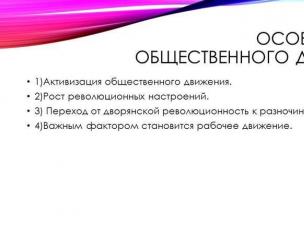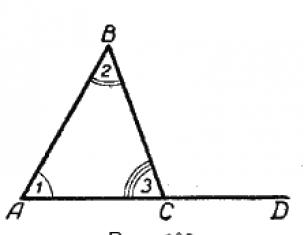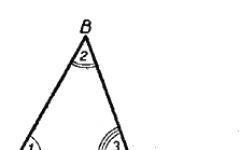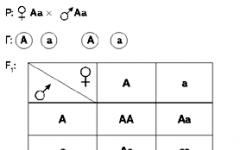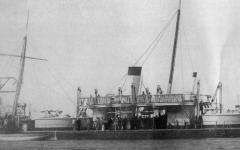Prince, outstanding Russian commander, infantry general (1809), hero Patriotic War 1812.
Bagration Pyotr Ivanovich was born in the city (Tersk region) into the family of a colonel in the Russian army, a representative of one of the younger branches of the Georgian royal family of the Bagratids.
P.I. Bagration was enlisted for military service on May 1, 1783 as a private in the Astrakhan Infantry Regiment. In the same year he received the rank of ensign. For about twelve years he held adjutant positions with prominent military leaders. P.I. Bagration served in the Caucasus and took part in the Russian-Turkish War of 1787-1791. For his bravery during the storming of the Turkish fortress of Ochakov (1788), he was promoted from second lieutenant to captain. During the Polish campaign of 1794-1795, P. I. Bagration distinguished himself during the capture of Prague (a suburb of Warsaw), attracting attention. On February 4, 1799, P.I. Bagration was promoted to major general.
In 1799-1800, the commander took part in the Italian and Swiss campaigns and successfully commanded the vanguard of the Russian army. This cemented his reputation as a favorite student. Bagration confirmed his military skill in the 1805 campaign against the French in the battle of Shengraben, where the Russian rearguard led by him repulsed all attacks and delayed the advance of a superior enemy, and then broke through and united with the main forces. For this feat he received the rank of lieutenant general, was awarded the order St. George 2nd degree. Unlucky for the Russians Battle of Austerlitz a column of Russian troops under the command of P.I. Bagration was able to break through the enemy ranks with minimal losses and break away from the pursuit of Napoleonic troops.
In the campaigns of 1806-1807 he commanded the Fourth Division and the main vanguard, took part in all the major military engagements with the French, and distinguished himself at Preussisch-Eylau and Friedland. During the Russian-Swedish war of 1808-1809, P.I. Bagration commanded 21 divisions that cleared the southern coast of Finland from the Swedes; in the spring of 1809, his division crossed the ice of the Gulf of Bothnia and occupied the Åland Islands. For this, the military leader was promoted to infantry general. During Russian-Turkish war 1806-1812, from July 1809 to March 1810, he commanded the Moldavian army. Under his leadership, Russian troops captured a number of fortresses on the Danube and were able to inflict defeats on the Turks at Rassevat and Tataritsa.
From August 1811, Bagration took over as commander of the Podolsk Army, and from March 1812, the Second Western Army, which covered the strategic direction from the western borders to the Central Army. This appointment took place despite the emperor's personal dislike of the general.
During Napoleon's invasion of the territory, having received an order not to engage in a clash with superior enemy forces, P.I. Bagration, with a skillful maneuver, brought the battles out from under the blow of superior enemy forces and after the battles near Mir and, using the inconsistency of the actions of the French military leaders, was able to break away from persecution and unite with the First Western Army under During this period, a group of generals and officers, relying on the popularity of P. I. Bagration in the troops and his fame as Suvorov’s associate, began to use his name in the fight against his retreat tactics, nominating Bagration for the post a single commander in chief. But before arriving, despite differences in views on methods of waging war, Bagration was forced to obey.
In the Battle of Borodino, the troops of P.I. Bagration defended the left flank of the Russian positions, and at the beginning of the battle took on the main blow of superior forces. Bagration personally led his units in counterattacks, in one of which he received a serious wound from a grenade fragment in the tibia of his left leg and was taken from the battlefield first to, and then to the village of Sima, Yuryev-Polsky district Vladimir province, the estate of the princes Golitsyn.
P.I. Bagration died from his wounds on September 12 (24), 1812. Initially he was buried at the village church. In 1839, his ashes were reburied on the Borodino field.
P.I. Bagration belonged to the commanders of the Suvorov school. As a military leader, he was distinguished by his ability to quickly navigate a difficult combat situation, courage and unexpectedness of decisions, and persistence in their implementation. He showed special concern for the soldiers, their health and well-being. He was extremely popular in the army and in Russian society.
Bagration Pyotr Ivanovich (1765-1812), prince, Russian military leader, hero of the Patriotic War of 1812.
Born on November 11, 1765, presumably in the city of Kizlyar (Dagestan) into a family of Georgian princes from the ancient Bagrationi family.
At the age of 17, Bagration was assigned to military service and took part in expeditions against the Chechens. In one of the battles he was seriously wounded and was captured, but the highlanders returned him without ransom out of gratitude to Bagration’s father, who had rendered them some service.
Bagration took part in the Russian-Turkish war of 1787-1791. and the Polish campaign (1793-1794). During the Italian and Swiss campaigns of A.V. Suvorov (1799), he commanded the vanguard of the Russian army. He was considered Suvorov's favorite student, and in 1799 he was awarded the rank of major general.
In the wars with France of 1805 and 1806-1807. Bagration successfully commanded the rearguard of the Russian army and distinguished himself in a number of battles, including Austerlitz (1805). In the Russian-Turkish war of 1806-1812. he was the commander-in-chief of the Moldavian Army, and from 1812 he commanded the 2nd Western Army. At the beginning of the Patriotic War of 1812, Bagration, having received an order not to engage in battles with superior enemy forces, managed to lead his army to Smolensk to join the 1st Western Army, but sharply opposed M.B. Barclay de Tolly’s demand for withdrawal of Russian troops.
In fact, the decision to retreat from Smolensk saved the Russian army from inevitable encirclement. Nevertheless, Bagration's popularity among the troops allowed the military opposition to use his name in the fight against Barclay de Tolly.
In the Battle of Borodino (August 26, 1812), Bagration’s troops defended the left flank of the Russian position, which received the main blow of Napoleon’s army at the beginning of the battle. The prince personally led his units in counterattacks and was seriously wounded by a grenade fragment in the tibia of his left leg. He died from his wound on September 24, 1812 in the village of Sima, Vladimir province.
In 1839, his ashes were solemnly reburied on the Borodino field.
Pyotr Ivanovich Bagration (1765 - 1812) - infantry general, talented military leader and outstanding commander, Suvorov’s favorite student, hero of the Patriotic War of 1812.
For my military career Bagration took part in 20 military campaigns and 150 battles. For outstanding military services, he was awarded the Order of the Russian, Prussian and Austrian States, as well as the Kingdom of Italy. Pyotr Ivanovich admired Suvorov’s talent and was a devoted admirer of his traditions. During military campaigns, he adhered to the “Suvorov” school - he slept dressed, 3-4 hours a day, was unpretentious in food, and preferred a simple and harsh life.
Bagration perfectly mastered the art of war, knew the nature and characteristics of military battles, was well versed in difficult situations, quickly made decisions and, without hesitation, was the first to rush into the attack. He always took care of the soldiers, showed concern for their health and life, and personally monitored the availability of provisions and uniforms. Prince Peter Ivanovich was very loved and respected in the army, he was popular in high society.
The beginning of life's journey
Peter was born on November 11, 1765 in the North Caucasus, in the city of Kizlyar. He came from an old and noble family of Georgian princes Bagrationi, in which military service became a tradition. The family did not live well, little Petrusha was brought up simply and attended a school for officers' children, where he received a mediocre education. Since Bagration’s future was determined from birth, at the age of 17 he entered the Astrakhan Infantry Regiment as a private, which was later renamed the Caucasian Musketeer Regiment, located in the vicinity of Kizlyar.
Military career
Pyotr Bagration gained his first combat experience as an 18-year-old youth during a military expedition in 1783 on the territory of Chechnya. In one of the skirmishes with the rebellious mountaineers, he was seriously wounded, lost consciousness and remained on the battlefield among the dead. The highlanders recognized Prince Peter, bandaged him and, expressing their respect to Bagration’s father for the service he had rendered in the past, returned his son without ransom. In 1785, near the village of Aldy, in an unsuccessful foray against the rebel highlanders, a young non-commissioned officer was captured, but was soon ransomed by the tsarist government.
Despite his noble origin, Prince Peter was not rich and had no protection or patrons. For about 11 years, until 1792, he served in the Caucasian Musketeer Regiment in adjutant positions, successively overcame all stages of his military career and rose to the rank of captain. In 1787 - 1791 He took part in the Russian-Turkish war, and in 1788 he showed ingenuity and fearlessness during the assault on Ochakov. Already in those years, Bagration earned the fame of a military officer with courage and bravery. For his services, in 1793 he was promoted to the rank of major and transferred under the command of Suvorov to the Sofia Carabineer Regiment, with which he went on a campaign against Warsaw in 1794. The field marshal treated Bagration with sympathy and trust, affectionately calling him “Prince Peter.”

George Dow. Pyotr Ivanovich Bagration. 1822-1823
During the Polish campaign, Bagration showed himself superbly, won a fabulous victory over superior enemy forces in Brody, for which he received the rank of lieutenant colonel. In 1797, Pyotr Ivanovich was appointed to the position of commander of the 6th Jaeger Regiment, where his talent as a military teacher and educator was discovered. The next year Bagration was promoted to colonel, and in 1799, at the age of 34, he received the rank of major general.
During the campaigns of 1799, Italian and Swiss, Suvorov helped the military leader Prince Peter strengthen and reveal his talent. Bagration was the permanent commander of the vanguard of the allied Russian-Austrian army, he was the first to take on the battle and often determined the outcome of the battle. His unyielding will to win, swift attacks and lightning-fast decision-making became legendary. Even opponents noted the composure, courage and determination of the undaunted general. Bagration never lost his presence of mind, no matter how hopeless the situation seemed.
Italian campaign in April-August 1799
The goal of the Italian campaign led by Suvorov was the liberation of Northern Italy from the troops of revolutionary France. The field marshal placed Bagration at the head of the vanguard of the Russian-Austrian army, entrusting him with the most dangerous and responsible sector. For the vanguard, the campaign began with a hundred-kilometer march, which resulted in the lightning-fast capture of the fortress of Brescia, the cities of Bergamo and Lecco.
Then the detachment found itself in the midst of a 3-day battle on the banks of the Tidona and Trebbia rivers, interrupted only for a few hours at night. Under the scorching Italian sun, Russian soldiers lost consciousness right on the battlefield, and the lightly wounded died of thirst. Both sides poured continuous fire on each other, and the ranks of fighters melted before our eyes. And yet, Bagration’s detachment won this battle; the general himself was wounded twice, but remained in the ranks, continuing to lead.
After 1.5 months, near Novi, the allied army under the leadership of Field Marshal Suvorov defeated Joubert’s army. And this time Pyotr Ivanovich fell the decisive blow in the battle. The French were expelled from Northern Italy. Suvorov highly appreciated Bagration's role in the Italian campaign, described him to Emperor Paul as an excellent general worthy of the highest praise and awarded him with his sword, which Prince Peter did not part with until the end of his life.
Swiss campaign of 1799
Returning from the Italian campaign, in September the Russian army began to prepare for a new one - the Swiss one, during which it had to pass through the Alps shrouded in fog and covered with snow. Bagration led the vanguard and paved the way for the main forces of Suvorov’s army in the mountains. When attacking the St. Gotthard Pass, Bagration's detachment passed through steep cliffs, bypassing enemy positions. Unexpectedly for the French, Russian soldiers appeared on the snowy peak from the rear, forced them to retreat and took the pass.
Having overcome the resistance of a stubborn enemy and the opposition of harsh nature, Suvorov’s army took the Devil’s Bridge and was approaching the junction with the Austrian troops. Imagine the field marshal’s surprise when it turned out that the passages indicated by the “allies” along the shores of Lake Lucerne did not exist. The Russian army found itself in a trap, without provisions, ammunition and artillery, surrounded by four times superior enemy forces. The triumph of the French knew no bounds. Only exceptional fortitude and courage saved the Russian soldiers then - Suvorov’s army got out of encirclement along narrow mountain paths.

Vasily Surikov. Suvorov's crossing of the Alps. 1899
At the head of the vanguard, as before, was Bagration, who with a detachment secretly descended into the Kluntal valley and attacked Molitor’s division. Out of surprise, the French wavered and began to retreat, while the Russian fighters continued to press them, step by step moving forward along a narrow mountain road, the width of which in places barely reached one meter.
So Suvorov’s army was able to escape from the encirclement. Bagration, as always, was in charge of the most responsible section. This time he was at the head of a two-thousand-strong rearguard, the basis of which was the 6th Jaeger Regiment, which covered the withdrawal of the main forces. Bagration's detachment was subjected to continuous attacks by almost three times superior enemy forces, launching counterattacks, taking up new positions and waging a desperate battle. Bagration was wounded three times, but remained in service.
Personal life
In 1800, 35-year-old Bagration married 18-year-old Countess Ekaterina Skavronskaya, maid of honor to Empress Catherine II. There were no children in the marriage. The young wife did not love her husband and after 5 years, breaking up with her husband, she left for Vienna. There, Catherine Bagration led the life of a free woman and in 1810 gave birth to a child with Prince Metternich. Subsequently, in 1830, she officially married the British general Caradoc for the second time, with whom she soon divorced and regained the title of Princess Bagration.
Reviews from contemporaries
One of the most complete and independent characteristics of Bagration is considered to be given to him by General Ermolov in one of his letters. Ermolov considered Pyotr Ivanovich a man of subtle and flexible mind, meek disposition, not angry, always ready for reconciliation. However, his character is independent and decisive. Bagration did not remember evil, but he never forgot good deeds. In communication, Prince Peter was polite and friendly, treated his subordinates with respect, appreciated their successes, and never showed his power. Junior officers considered it a pleasure to serve under Bagration, and the soldiers idolized him. Describing the military qualities of Pyotr Ivanovich, Ermolov emphasizes his natural talent, but mentions the lack of proper education and upbringing without a mentor. As a result, he received all his knowledge about military craft from experience and, without knowing military science, often fell into errors. In battle, Bagration was undaunted, indifferent to danger, and never lost heart.
Russian-Austro-French War of 1805
Under the leadership of Kutuzov, Russian regiments marched to Austria to help the Allies. No sooner had they crossed the border than the Austrian army announced capitulation, and the Russian units near Ulm found themselves facing seven French corps. Kutuzov ordered a retreat to the Russian border, and Bagration led the rearguard, which, at the cost of stubborn fighting, held back the enemy’s onslaught and allowed the main forces to escape from the trap. But as soon as the Russian units crossed to the left bank of the Danube, Vienna surrendered to Napoleon, and he threw all his forces across their path of retreat. All of Kutuzov’s hopes were in Bagration’s detachment, which was ordered to detain the French at any cost. Everyone considered the rearguard soldiers to be suicide bombers, even Kutuzov, saying goodbye, crossed Pyotr Ivanovich as doomed to death.
Thirty thousand French frantically attacked the six-thousand-strong Russian barrier in the battle of Shengraben. The hot battle went on without a break all day, but Bagration’s fighters did not retreat a single step, whose ranks were melting before our eyes. They repelled all attacks and delayed the enemy's advance, and then broke through and linked up with the main forces. For his brilliant feat, which made it possible to withdraw the main forces of the Russian army without losses, Bagration was elevated to lieutenant general, and the 6th Jaeger Regiment, for the first time in the Russian army, was awarded silver trumpets with St. George ribbons.
In the battle near the city of Austerlitz, Bagration's vanguard formed the right flank allied army. When the center of the battle disposition was scattered, it was subjected to a brutal onslaught by the French, but withstood and again becoming a rearguard, adequately covered the retreat of the defeated army.
Military campaigns of 1806 - 1809
Depending on whether the Russian army was attacking or retreating, Bagration commanded vanguard or rearguard detachments and repeatedly distinguished himself in battles. In the Russian-Prussian-French War of 1806 - 1807, he commanded the 4th Division and distinguished himself during the battles of Friedland and Preussisch-Eylau. In the Battle of Friedland, with a sword in his hands, he tried to raise the trembling soldiers into battle, but it was all in vain. Then his detachment covered the retreat of the Allied forces for 5 days. Bagration's reward was a diamond-studded sword with the engraving “For Bravery.”
During the Russian-Swedish war of 1808 - 1809. in the spring of 1809, Bagration did the impossible - he led soldiers across the ice of the Gulf of Bothnia, occupied the Åland Islands and reached the shores of Sweden. Such an unexpected appearance of Russian soldiers forced Stockholm to sign a peace treaty beneficial for Russia. For the Åland expedition, Bagration received the rank of general of infantry troops - general of infantry.
The winner's return to St. Petersburg was triumphant - high society admired Prince Peter, balls were given in his honor and poetry was written. He was so popular that even his portraits sold like Christmas cards. Many contemporaries described Bagration as a lean man of average height, with a prepossessing oriental appearance. He always behaved modestly, did not stick out, but with great inner dignity. Kindly treated by Suvorov, the owner of many brilliant victories, a deeply decent person, for whom honor was tantamount to life, selflessly loving Russia, Pyotr Ivanovich was surrounded by an aura of glory and veneration. “He is the God of the army”—that’s what his proud compatriots called the talented commander.
One of the most enthusiastic admirers of the great general turned out to be the sister of Alexander I, young Ekaterina Pavlovna. Royal family, seriously frightened by such a strong passion Grand Duchess, hastily married her to the Prince of Oldenburg, and Prince Peter was appointed commander-in-chief of the Moldavian army, which participated in the war with Turkey. Having accepted the Moldavian army, which barely numbered 20 thousand people, the general won a series of brilliant victories: Girsovo, Machin, Kyustendzhi, Rassevat, Silistria, Izmail, Brailov and Tataritsy. Taking into account the approach of Turkish reinforcements and the approach of winter, Pyotr Ivanovich redeployed units to the left bank of the Danube, hoping to resume operations in the spring. But many in St. Petersburg were not satisfied with this decision, and in March 1810 he was replaced by General Kamensky.
Patriotic War of 1812
By the beginning of the war, Bagration led the 2nd Western Army, numbering 45 thousand people and 216 guns. He developed his plan for the upcoming military campaign, consisting exclusively of offensive operations. But his plan did not correspond to the real balance of forces: Russia could field 200 thousand soldiers on the western border, while Napoleon gathered 600 thousand soldiers for the invasion. An offensive in such a situation was a mistake, and Bagration received orders to retreat inland to join Barclay de Tolly's 1st Western Army. Along the way, it was necessary, no matter how sad it was, to destroy all food. Thus, the Patriotic War for Russia began with a tactical retreat near Smolensk of both Western armies, which saved them from inevitable encirclement.
In an effort to prevent the unification of the Russian armies, Napoleon sent a consolidated corps of about 140 thousand people against 45 thousand Russian soldiers in pursuit of Bagration’s units. It seemed that the fate of the 2nd Western Army was predetermined, and it would inevitably be crushed. But, as had happened more than once, the Russian warriors deceived the expectations of the French - quickly advancing and skillfully maneuvering, they retreated, breaking through their pursuers, smashing their detachments without respite. As always, having excellently coped with the task of preserving the army for the next stage of military operations, but not possessing the broad strategic thinking of a major commander, Bagration did not understand the justification for the retreat.
battle of Borodino
The Battle of Borodino began at half past five in the morning on September 7 (August 26), 1812. On the left flank near the village of Semenovskaya, units of the 2nd Army under the leadership of Bagration were located. On the field in front of the village, three earthen fortifications were erected - “Bagration's flushes”. It was here that Napoleon aimed his main attack, hoping to break through the Russian barrier within a few hours. Having launched the first attack, Marshal Davout's corps retreated, struck by a shower of fire from Russian batteries. The French infantry reformed several times and again rushed to attack. There were countless dead and wounded - about a hundred soldiers died every minute, and General Davout was also out of action.
An angry Napoleon sent units of Ney and Junot to help, demanding to break through the Russian left flank at any cost. It is still unclear why Napoleon, knowing and highly appreciating Bagration’s outstanding military abilities, aimed a blow at his corps. Perhaps this was due to the desire to take revenge for past defeats. Near Semyonovskaya french army encountered insurmountable opposition from Bagration’s army, which was impossible to break. The stubborn hand-to-hand battle, in which 100 thousand soldiers fought on both sides, lasted 6 hours without a break. Buried under the bodies of people and horses, the flushes passed from hand to hand. The regiments of the 2nd Army were thinning before our eyes, but Kutuzov, understanding the strategic importance of the battle, constantly reinforced them with fresh units. The fearless Bagration was in the thick of it and calmly gave orders, putting his life in danger every second. In the afternoon he gave the order to the regiments to begin a counterattack. Before the cavalry had time to rush towards the enemy, a fragment of the cannonball struck the general, crushing the tibia of his left leg. Removed from his horse, he tried to lead the regiments, but lost consciousness and was transported to the rear.
Last days
On September 8, Bagration was transported to Moscow. The wound caused Pyotr Ivanovich unbearable pain, he developed a fever, and after 2 days the wound festered. The general’s condition did not improve; it was decided to convene a medical consultation, at which it became clear that a fragment of the core remained in the wound. Doctors suggested amputation, which he flatly refused. On September 19, Bagration was brought to the estate of a friend, General Golitsyn, in Simy. Dampness and shaking during the road greatly worsened his condition, and on September 21 an operation was performed to widen the wound. During the manipulation, bone fragments, parts of the core and a lot of rotten flesh were removed from the wound. The next day, Bagration was diagnosed with gangrene. On September 24, 1812, 17 days after being wounded, Pyotr Ivanovich died and was buried in Simakh.
Bagration's death became a universal tragedy - all of Russia mourned him. In 1839, 27 years later, his ashes were solemnly transported from the village of Sima to the Borodino field and buried on Kurgan Heights next to the monument to the heroes of Borodin. Pyotr Ivanovich Bagration is known as a talented military leader and an outstanding commander, Suvorov’s favorite student, an ardent Russian patriot who devotedly served the Fatherland and put love for the Motherland above his own life, a hero of the Patriotic War of 1812, an outstanding specialist in conducting vanguard and rearguard battles, a master of bold attacks and unexpected maneuvers.
Bagration Petr Ivanovich(1765-1812) - prince, Russian military leader, infantry general, participant in the Italian and Swiss campaigns A.V. Suvorov, wars with France, Sweden. Turkey; during the Patriotic War of 1812, commander-in-chief of the 2nd Western Army; mortally wounded in the Battle of Borodino.
Born in the city of Kizlyar in the family of a retired colonel from an old family of Georgian princes. In 1782-92 he served in the Caucasian Musketeer Regiment, and then in the Kiev Cavalry and Sofia Carabineer Regiments in the ranks from sergeant to lieutenant colonel. In 1798 Bagration was colonel, commander of the 6th Jaeger Regiment, and in 1799 - major general. In Suvorov's Italian and Swiss campaigns of 1799, Bagration commanded the vanguard. The troops under the command of Bagration played important role in battles on pp. Adda, Trebbia and Novi, fought successfully and heroically at Saint Gotthard, the Devil's Bridge. In the campaigns of 1805-07, commanding the rearguard of the Russian army, Bagration particularly distinguished himself in the battles of Schöngraben, Preussisch-Eylau and Friedland. Bagration - participant in the Russian-Swedish war of 1808-09, led the Åland expedition of 1809. In the Russian tour. War of 1806-12 from July 1809 to March 1810 commanded the Moldavian Army, from August 1811 he headed the Podolsk Army, from March 1812 he commanded the 2nd Western. army, at the head of which he participated in the Patriotic War of 1812. In initial period war, with a skillful maneuver from Volkovysk to Smolensk, he brought his army out from under the blow of superior enemy forces to join the 1st Western. army, causing heavy losses French troops in rearguard battles near Mir, Romanov and Saltanovka. In the Battle of Borodino in 1812 he commanded the left wing of the Russian army. He was seriously wounded and died in the village. Sima, Vladimir province, where he was buried. In 1839 his ashes were transferred to the Borodino field.
Portraits of Bagration and monuments



BAGRATION PETER IVANOVICH (1765 - 1812) - Russian general from infantry, prince, hero of the Patriotic War of 1812 “Lion of the Russian Army”, “the most excellent general, worthy higher degrees" Descendant of the Georgian royal house of Bagration.
According to reference data, Peter Bagration was born in Kizlyar on June 12, 1769. However, according to the petitions of Ivan Alexandrovich, the parents of the future General Bagration moved from Iveria (Georgia) to Kizlyar in December 1766. Thus, there is reason to believe that the future commander was born in Tiflis.
WITH early years showed great interest and love for military affairs, dreaming of devoting himself to the military profession.

Pyotr Bagration began his military service on February 21, 1782 as a private in the Astrakhan infantry regiment, stationed in the vicinity of Kizlyar. From that time it began military activities which lasted continuously for thirty years.
Troops on the Caucasian borders had to be constantly in a state of combat readiness and repel raids by enemy troops. In one of the battles with the highlanders, Peter was seriously wounded and left on the battlefield in a pile of dead and wounded. He was picked up by the mountaineers, who had been collecting weapons at night and mistook young Bagration for one of their own. They got him out, and then, having learned who he was, out of respect for his father, who had once done them a favor, they took him to the Russians without ransom.

In June 1787, he was awarded the rank of ensign of the Astrakhan regiment, which was transformed into the Caucasian Musketeer Regiment. As part of this regiment, it took part in the siege and subsequent assault on Ochakov on December 6, 1788, being one of the first to break into the fallen fortress.
Bagration served in the Caucasian Musketeer Regiment until June 1792, successively passing through all levels military service from sergeant to captain. In 1792 he was promoted to second-major and transferred to the Kiev Cuirassier Regiment, and in 1793 to the Sofia Carabineer Regiment. He took part in the Polish campaign of 1794. During the assault on the Warsaw suburb of Prague on October 24, he was noticed by A.V. Suvorov and became his favorite.

In May 1797, Pyotr Ivanovich was appointed commander of the 7th Jaeger Regiment. In February 1798 he was promoted to colonel, and in February 1799 to major general. In the Italian and Swiss campaigns of A. V. Suvorov in 1799, General Bagration, commanding the vanguard of the army, stormed the citadel of Brescia (April 10), attacked and occupied the city of Lecco, and was wounded by a bullet in the leg, but remained in the ranks, continuing to lead the battle.
On May 6, having heard shots fired at Marengo, Bagration united with the Austrians, generously ceding overall command to the junior in rank, General Lusignan, joined him on both flanks and carried the allies into a rapid attack with the beating of drums, simultaneously stopping all attempts by the French to bypass the right flank. The French attempt to break into Genoa failed.

On the morning of June 6, having received news that Macdonald had attacked the Austrians on the river. Tidone, Suvorov immediately took the Cossack regiments and Austrian dragoons from the vanguard and, together with Bagration, led them to the battlefield. At three o'clock in the afternoon he was already there and with a dashing cavalry attack delayed the onslaught of the French until the vanguard infantry arrived. When she appeared, Bagration approached Suvorov and in a low voice asked him to delay the attack until the laggards arrived, because there were not even 40 people in the companies. Suvorov answered in his ear: “But MacDonald doesn’t even have 20, attack with God’s mercy! hooray!" Bagration obeyed. The troops unitedly attacked the enemy and threw him back in great disorder beyond Tidone. Macdonald gathered his army on the Trebia and on June 7 received a new attack by Suvorov on its left bank, during which Bagration was wounded for the second time, but this wound did not put him out of action.

This was followed by the legendary campaign of Suvorov’s troops through the Alps to Switzerland. Bagration walked either at the head of the marching column, being the first to take all the enemy’s blows and overcoming natural obstacles, or in the rearguard - holding back the onslaught of the French, and by the end of the campaign only 16 officers and 300 lower ranks remained in Bagration’s regiment. He himself was wounded for the third time during this war in the battle of Klental. Upon returning to Russia, Bagration was appointed chief of the Life Jaeger battalion, which was later reorganized into a regiment, and remained so until his death.

The Italian and Swiss campaigns glorified Bagration as an excellent general, and showed his most distinctive character traits - exceptional composure and courage in battle, speed and decisiveness of action, and the ability to make the most of an opportune moment during the battle. The fame of Bagration's courage and fearlessness quickly and widely spread among soldiers and officers of the Russian army.

With the outbreak of Russia's first war with Napoleon, in 1805, Bagration was entrusted with the vanguard of Kutuzov's army. True, due to the surrender of the Austrian army near Ulm, the Russian corps came face to face with seven French corps and was forced to retreat. Bagration, who remained in the rearguard, was supposed to cover the retreat, holding back enemy attacks for 400 miles. He had to save the Russian army a second time, when Ulm was followed by the capitulation of Vienna. The situation was even more serious, since Napoleonic troops were thrown across the retreating Russians. Kutuzov ordered to detain the French at all costs, even if for this he had to sacrifice his entire detachment and the last man. Saying goodbye to Bagration, Kutuzov crossed him as if he were doomed to death. The whole army looked at Bagration in the same way, knowing that its fate depended on his steadfastness. Bagration vowed to resist. And he kept his word. For 8 hours, his detachment was subjected to fierce attacks, suffered serious losses, but did not give up positions. His soldiers did not retreat even when Legrand's division went to the rear. Only upon receiving the news that Kutuzov’s army was out of danger did Bagration surrender his positions, fighting his way hand-to-hand through the encirclement, even capturing prisoners and one French banner.
For this brilliant feat, Bagration was promoted to lieutenant general, and the 6th Chasseur Regiment, the first of the regiments of the Russian army, received silver trumpets with St. George's ribbons as a reward.

After Kutuzov joined the corps of Count Buxhoeveden, the Russian army went on the offensive and Bagration’s detachment again became the vanguard. On the way to Austerlitz, Bagration defeated enemy troops near Wischau and Rausnitz. On December 2, on the Field of Austerlitz, Bagration's vanguard formed the extreme right flank of the combat position of the allied army and, when the columns of its center were scattered, were subjected to a brutal onslaught of the victorious enemy, but resisted and covered the retreat of the defeated army, again becoming its rearguard. For Austerlitz, Bagration was awarded the Order of St. George, 2nd class.

In the campaigns of 1806-1807. Bagration distinguished himself in the battles of Preussisch-Eylau and Friedland in Prussia. Napoleon formed an opinion about Bagration as the best general Russian army. At the turning points of the battle, he sometimes dismounted and went on the attack or to the battle line, sparing neither himself nor the enemy. The general attacked fiercely and stubbornly defended himself, which ruined the enemy’s plans and made it possible allied forces rebuild or retreat. In the battle of Friedland, Bagration's detachment formed the left flank of the Russian army. When the troops could not stand it and began to retreat in frustration, Bagration, with a sword in his hands, encouraged the Moscow Grenadier Regiment, the remnants of which surrounded his horse, reminding the soldiers of their exploits in Italy with Suvorov... But it was all in vain. Even the Semyonovtsy and Pavlovtsy wavered and besieged them back. Then Bagration, wanting to at least somewhat restrain the onslaught of the French, ordered Colonel Ermolov to bring some kind of artillery company. Bagration spent 16 hours in the thick of this fierce battle and then held back the enemy for another 5 days, pursuing the defeated Russian army marching towards Tilsit. For Friedland, Bagration was awarded a gold sword decorated with diamonds with the inscription “For bravery.”

IN Russian-Swedish war 1808-1809 commanded a division, then a corps. He led the Åland expedition of 1809, during which his troops, having crossed the ice of the Gulf of Bothnia, occupied the Åland Islands and reached the shores of Sweden. In the spring of 1809 he was promoted to infantry general.
During the Russian-Turkish War of 1806-1812. was the commander-in-chief of the Moldavian army, led the fighting on the left bank of the Danube. Bagration's troops captured the fortresses of Machin, Girsovo, Kyustendzha, defeated a 12,000-strong corps of selected Turkish troops at Rassavet, and inflicted a major defeat on the enemy near Tataritsa.
Since August 1811, Bagration was the commander-in-chief of the Podolsk Army, renamed in March 1812 into the 2nd Western Army. Anticipating the possibility of Napoleon's invasion of Russia, Pyotr Ivanovich put forward a plan that provided for advance preparation to repel aggression.

At the beginning of the Patriotic War of 1812, the 2nd Western Army was located near Grodno and found itself cut off from the main 1st Army by the advancing French corps. Bagration had to retreat with rearguard battles to Bobruisk and Mogilev, where, after the battle near Saltanovka, he crossed the Dnieper and on August 3 united with the 1st Western Army of Barclay de Tolly near Smolensk.
Bagration advocated involving broad sections of the people in the fight against the French and was one of the initiators partisan movement. Under Borodin, Bagration's army, forming the left wing of the battle formation Russian troops. And it was precisely at this wing that the French emperor aimed his main blow. According to the tradition of that time, decisive battles were always prepared as if they were a show - people dressed in clean linen, shaved carefully, put on ceremonial uniforms, orders, white gloves, sultans on shakos, etc. It is exactly as he is depicted in the portrait - with a blue St. Andrew's ribbon, with three stars of the Orders of Andrew, George and Vladimir and many order crosses - that Bagration's regiments saw him in the Battle of Borodino, the last in his military life.

Bagration's regiments repelled all attacks of Napoleon's army. But the French, using their numerical superiority, further intensified the pressure on the Russians. At a critical moment in the battle, Bagration personally led his troops into an attack on the advancing enemy. A cannonball fragment crushed the general's tibia in his left leg. The prince refused the evacuation proposed by the doctors. The commander, removed from his horse, still continued to lead his troops, but after losing consciousness he was taken from the battlefield. “In an instant, rumors of his death spread,” recalled A. Ermolov, “and the army could not be kept from confusion.” It was short-lived and resulted in the abandonment of flashes, but then the Russian soldiers, who had lost their beloved commander, were overcome by rage. The battle broke out with new strength. The next day, Bagration mentioned the injury in his report to Tsar Alexander I:

On September 24, 1812, Pyotr Ivanovich Bagration died of gangrene, 17 days after being wounded. According to the surviving inscription on the grave in the village of Sima, he died on September 23.

In 1839, on the initiative of the partisan poet D.V. Davydov, the ashes of Prince Bagration were transferred to the Borodino field.
Pyotr Ivanovich Bagration belonged to the commanders of the Suvorov school. As a military leader, he was distinguished by his ability to quickly navigate a difficult combat situation, courage and unexpectedness of decisions, and persistence in their implementation. He showed special concern for the soldiers, their health and life. He was extremely popular in the army and in Russian society. Throughout his entire military career, Pyotr Ivanovich Bagration did not suffer a single defeat. The heroic actions of himself and his units saved many lives, and may have been decisive in the outcome of the battles.



